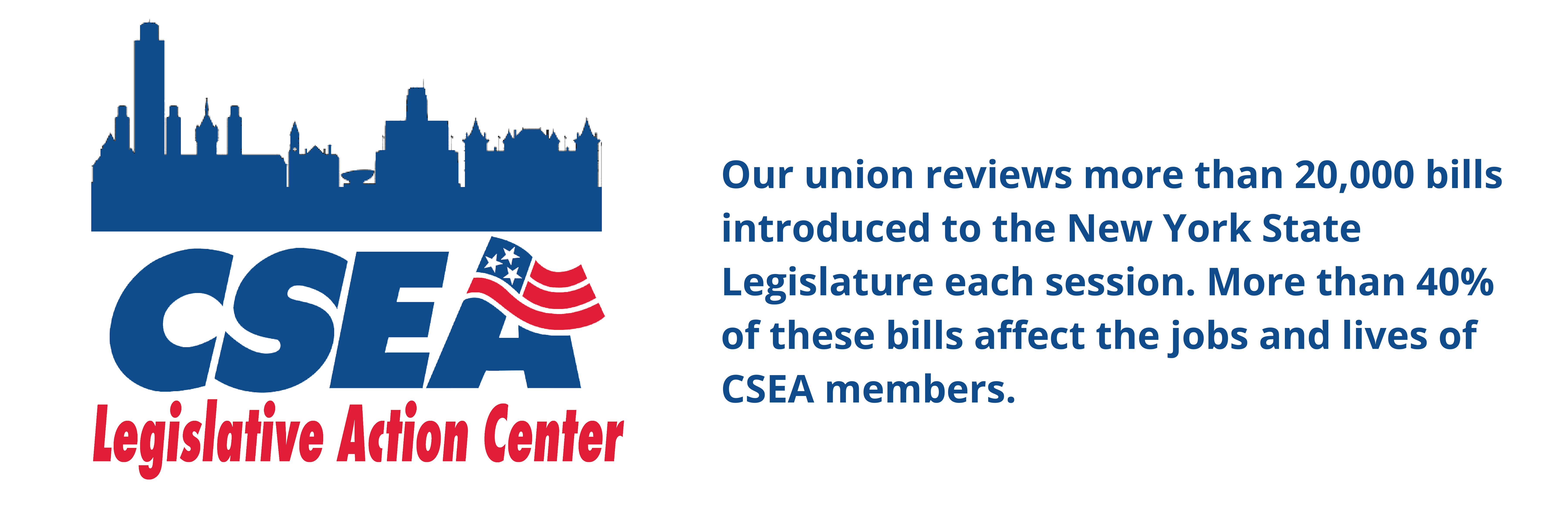
What CSEA Is Working On
Learn about important legislation on which our union is actively lobbying.
Pending State Legislation
The following bills have passed both houses of the state legislature and are awaiting action by the Governor:
Our union’s successes
The following successes are due to the activism of CSEA members
Tier 6 reform
CSEA is celebrating the inclusion of reforms to the Tier 6 pension plan in the FY 2025 State Budget.
The enacted state budget includes a change to how pensions are calculated. Under the new law, a Tier 6 employee’s pension will be based on their top three years of earnings instead of five years. This change will increase retirement security for Tier 6 employees and make Tier 6 look more like earlier pension tiers.
